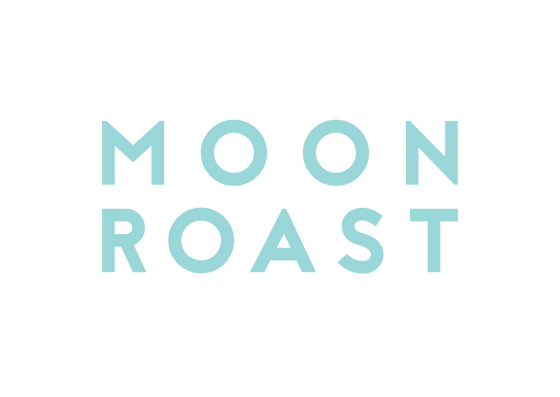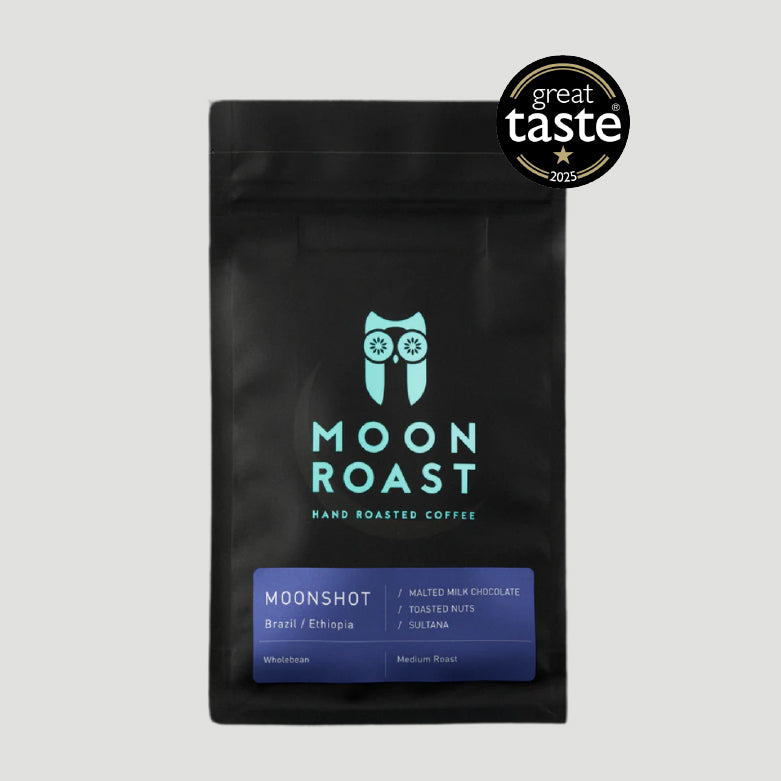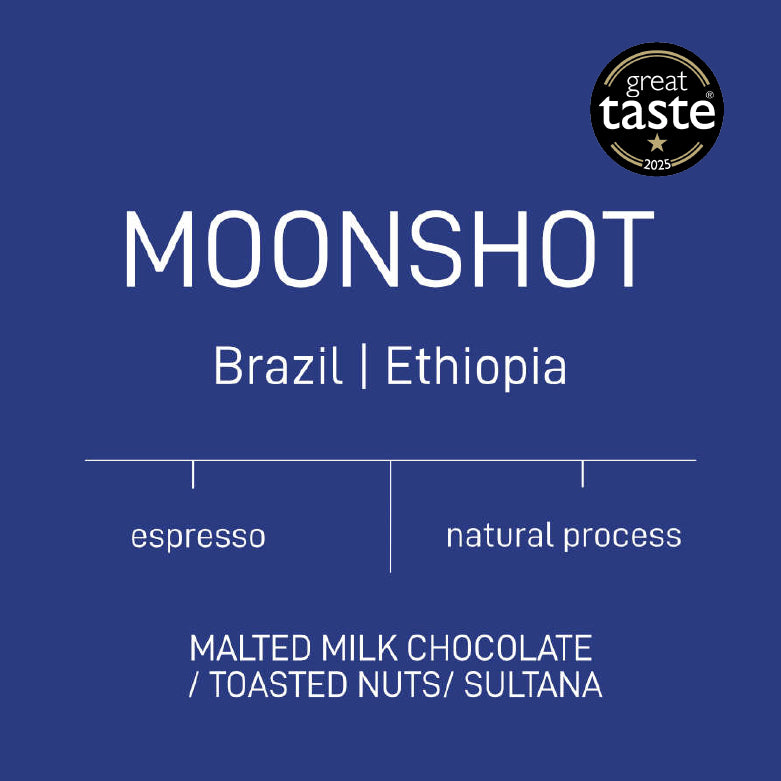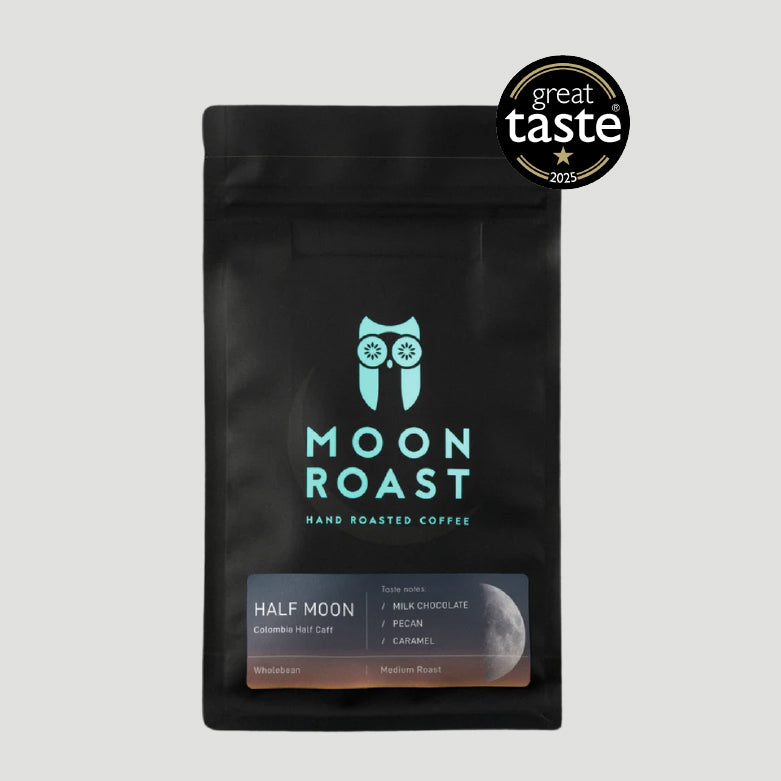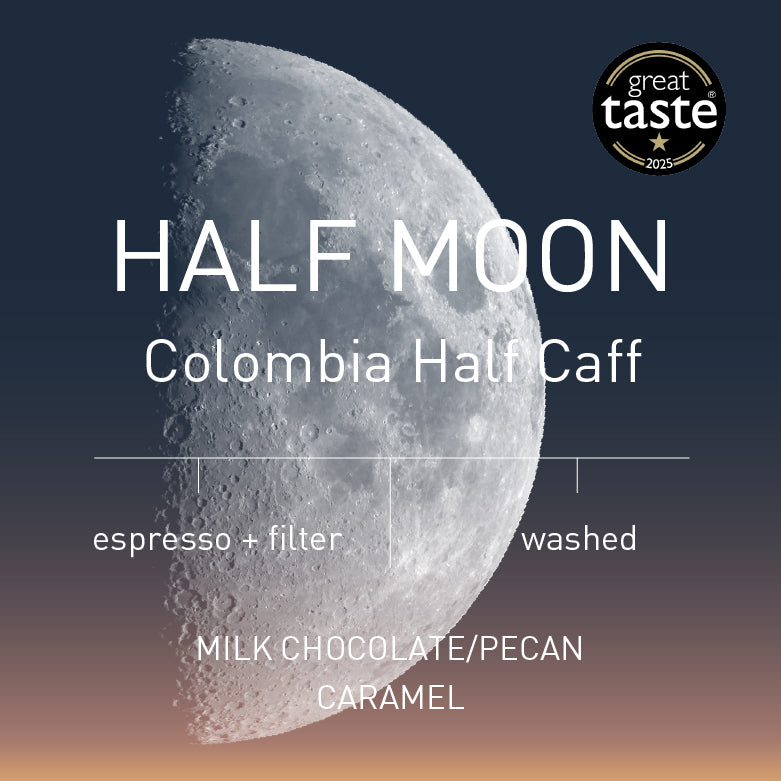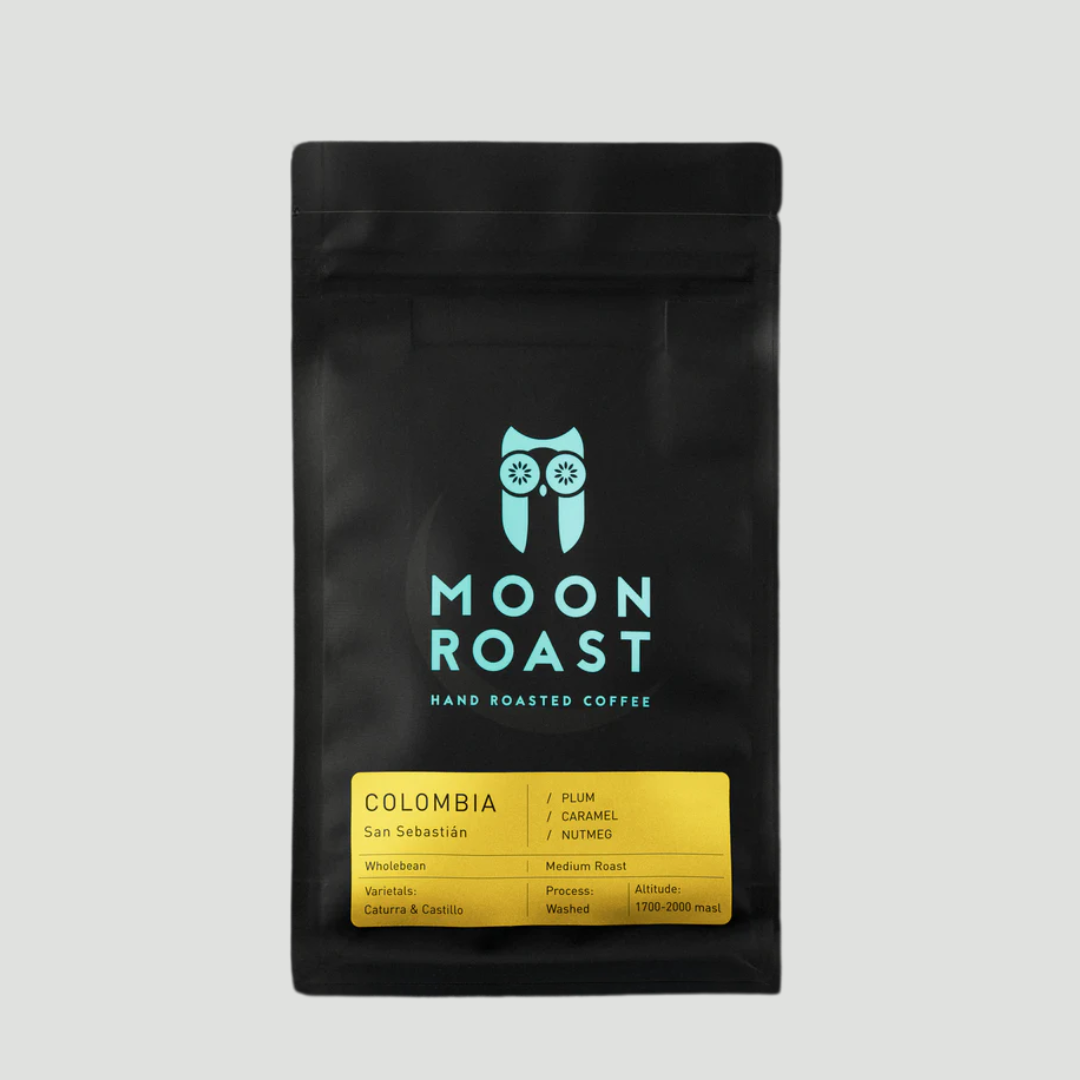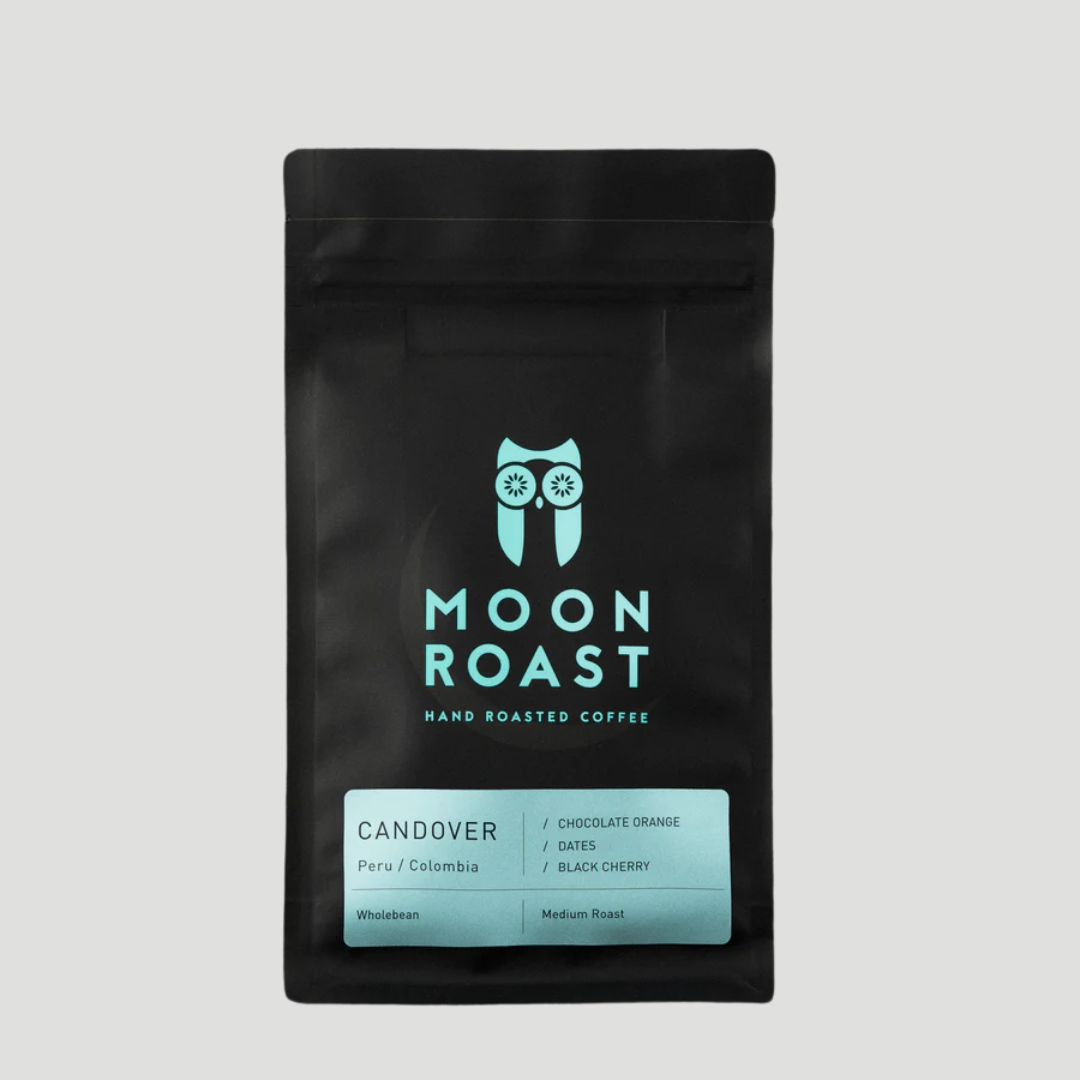What Does Specialty Coffee Mean?
Specialty coffee is more than just a buzzword—it's a term that represents the highest quality coffee, carefully cultivated and expertly crafted from the very beginning. Unlike commodity coffee, which is mass-produced with less emphasis on unique flavour, specialty coffee is all about excellence at every stage, from the farm to your cup.
From Seed to Cup: A Journey of Quality
The concept of "specialty coffee" first emerged in 1974, thanks to Erna Knutsen, who used it to describe beans grown in ideal conditions with distinct flavour profiles. Specialty coffee comes from beans that are cultivated in specific microclimates, where factors like soil, altitude, and climate combine to create something truly exceptional.
For coffee to be labelled as specialty, it must score at least 80 points on a 100-point scale set by the Specialty Coffee Association (SCA), of which Moon Roast is a member. This scoring takes into account:
- Aroma: The inviting scent of the coffee, with notes that might be floral, fruity, or nutty.
- Flavour: A well-rounded and complex taste that’s enjoyable from the first sip to the last.
- Aftertaste: The lingering taste that remains after swallowing, consistent with the coffee’s overall flavour.
- Acidity: A bright or crisp quality in the coffee, often described as fruity or citrusy.
- Body: The weight or mouthfeel of the coffee, which can range from light to full-bodied.
- Balance: How well the flavours, acidity, and body work together to create a harmonious cup.

Each step in the specialty coffee process—from selecting the ripest cherries to expert roasting and precise brewing—is carefully managed to showcase the beans' unique qualities. The result is a coffee experience that’s richer and more nuanced than your average cup.
What is the Difference Between Specialty Coffee and Commodity Coffee?
When you compare specialty coffee to commodity coffee, the differences are clear, from taste and quality to the impact on the coffee industry and beyond.
Quality and Flavour
The first difference you'll notice is the quality. Commodity coffee, which dominates the global market, is grown for quantity rather than quality. The beans are often harvested in bulk, with little regard for individual flavour profiles, resulting in a cup that’s uniform but lacks depth. This coffee tends to be more bitter and flat due to the lower quality beans and large-scale roasting processes used.
Specialty coffee, on the other hand, is all about precision. Farmers growing specialty coffee often use sustainable practices, carefully handpicking the best cherries. The result? A cup of coffee that offers a complex array of flavours, from fruity and floral to chocolatey and nutty, depending on where and how it was grown.
Economic and Ethical Impact
There’s also a significant difference in the economic and ethical implications of the two types of coffee. Commodity coffee prices are dictated by the global market, with little regard for the quality of the beans. This often means that farmers are paid less than what it costs to produce the coffee, leading to economic strain.

Specialty coffee follows a different model. It often involves direct trade relationships between roasters and farmers, ensuring that farmers are paid fairly for their high-quality beans. This not only supports sustainable farming but also helps improve the livelihoods of those who grow the coffee.
Transparency and Traceability
Transparency is another key aspect that sets specialty coffee apart. In the world of commodity coffee, beans are often mixed from various sources, making it difficult to trace their origins. This can raise concerns about the conditions in which the coffee was grown and harvested.
In contrast, specialty coffee prides itself on traceability. Consumers can often trace their coffee back to the exact farm or even the specific plot where it was grown. This level of transparency allows for more informed choices and supports a more ethical and sustainable coffee industry.

Is It Healthier to Drink Specialty Coffee?
When considering the health benefits of coffee, specialty coffee offers some clear advantages.
Fewer Pesticides and Chemicals
Specialty coffee is often grown using more organic and sustainable methods, meaning fewer pesticides and chemicals make their way into your cup. Commodity coffee, by contrast, is usually grown using intensive farming practices that rely on chemical inputs, which can leave residues on the beans.
Higher Antioxidant Content
Specialty coffee is typically fresher and roasted with more care, preserving higher levels of antioxidants like chlorogenic acids. These compounds have been shown to reduce inflammation and lower the risk of certain chronic diseases. Industrial roasting methods used for commodity coffee can diminish these beneficial compounds, making specialty coffee the healthier option.

Less Likely to Contain Mold and Mycotoxins
Another health advantage of specialty coffee is its lower risk of contamination by mold and mycotoxins. These harmful substances can form on improperly stored coffee beans. However, the stringent quality controls in specialty coffee production significantly reduce this risk, ensuring a cleaner, safer cup.
Positive Mental Effects
Drinking specialty coffee isn’t just about physical health—it can also be a boost for your mental well-being. The rich flavours and the experience of enjoying a carefully brewed cup can provide a moment of mindfulness in a busy day. The satisfaction that comes from drinking something truly exceptional can enhance your overall coffee experience, making it more than just a caffeine fix.
Summary
Specialty coffee like the fresh specialty coffee at Moon Roast is more than just a drink; it’s a celebration of quality, ethics, and sustainability. From the careful cultivation of the beans to the thoughtful roasting and brewing processes, everything is designed to bring out the best in every cup. The differences between specialty and commodity coffee go beyond taste—they impact your health, the environment, and the lives of coffee farmers. Whether you're looking for a richer flavour, supporting sustainable practices, or simply wanting a healthier cup of coffee, specialty coffee is a choice that’s worth making.
